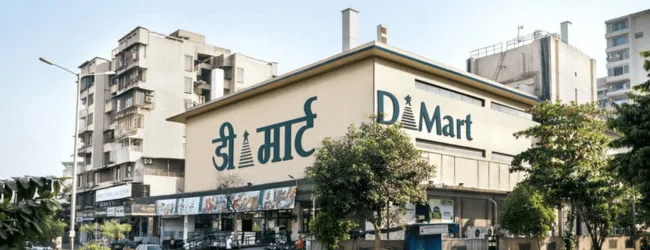Table of contents
- Does DMart Offer Franchises?
- Why Doesn’t DMart Offer Franchises?
- Exploring Alternative Business Opportunities in Retail
- Understanding the Typical Costs of Retail Franchises in India
- General Requirements for Opening a Retail Franchise in India
- Steps to Explore Retail Franchise Opportunities in India
- Conclusion
- Frequently Asked Questions (FAQs)
Thinking of starting your own retail business in India? The name DMart likely comes to mind. Known for its affordable prices and wide range of products, DMart has become a household name across the country. But can you actually own a DMart franchise? Let’s delve into the details of opening a DMart store, the associated costs, requirements, and other essential information.
While the idea of partnering with a successful brand like DMart is appealing, it’s crucial to understand their business model.
Does DMart Offer Franchises?
Currently, DMart does not operate on a franchise model. All DMart stores across India are owned and managed directly by Avenue Supermarts Ltd., the parent company. This means that individuals or entities cannot directly own or operate a DMart franchise.
This might be surprising to some, given the popularity of franchising in the Indian retail sector. However, DMart’s strategy has been to maintain tight control over its operations, ensuring consistent pricing, quality, and customer experience across all its stores. This centralised approach has been a key factor in their success.
Highlight: DMart follows a fully owned and operated model and does not offer franchise opportunities. (Check Out: Franchises You Can Start Now in India)
Why Doesn’t DMart Offer Franchises?
There are several potential reasons behind DMart’s decision not to franchise:
- Maintaining Quality Control: Direct ownership allows DMart to have complete control over product sourcing, store layout, staff training, and customer service standards. This ensures uniformity and adherence to their brand promise.
- Consistent Pricing Strategy: DMart’s “Every Day Low Prices” (EDLP) model is central to its appeal. Franchising could potentially lead to pricing inconsistencies across different locations.
- Operational Efficiency: A centralised management structure allows for streamlined operations, efficient supply chain management, and better inventory control.
- Brand Image and Reputation: By owning all stores, DMart can directly safeguard its brand image and reputation, ensuring a consistent customer experience.
- Long-Term Growth Strategy: Their current model seems to align with their long-term growth plans, allowing for strategic expansion in key markets.
Exploring Alternative Business Opportunities in Retail

While a DMart franchise might not be an option, the Indian retail market offers numerous other franchising and business opportunities. If you’re keen on entering the retail sector, consider exploring franchises of other successful brands in categories like:
- Apparel and Fashion: Many national and international clothing brands offer franchise models.
- Food and Beverage: This sector is ripe with franchising opportunities, from quick-service restaurants to cafes and speciality food stores. Examples in India include Domino’s, McDonald’s, and Cafe Coffee Day.
- Grocery and Convenience Stores: While DMart doesn’t franchise, other smaller supermarket chains or convenience store brands might offer such opportunities.
- Education and Training: Various educational institutions and coaching centres operate on a franchise model.
- Services: Businesses offering services like salons, spas, and logistics often have franchise options.
Highlight: While DMart franchising isn’t available, the Indian retail landscape offers diverse franchise opportunities in various sectors. (Check Out: Best Franchise Business Ideas To Start in India in 2025)
Understanding the Typical Costs of Retail Franchises in India
Although we can’t provide the “DMart franchise cost” specifically, understanding the general cost structure of retail franchises in India is beneficial. The investment can vary significantly based on factors such as:
- Brand Reputation and Recognition: Well-established brands typically have higher franchise fees.
- Business Size and Format: Larger store formats or those requiring specialised equipment will have higher costs.
- Location: Real estate costs, which can vary dramatically between cities and even within neighbourhoods, are a significant factor.
- Franchise Fee: This is an upfront fee paid to the franchisor for the right to use their brand and business model. It can range from a few lakhs to several crores.
- Infrastructure and Setup Costs: This includes expenses for store design, renovation, furniture, fixtures, equipment, and initial inventory. This can be a substantial portion of the total investment. For a retail store, this could range from ₹20 lakhs to ₹1 crore or more, depending on the size and format.
- Working Capital: You’ll need funds to cover initial operating expenses such as rent, salaries, utilities, marketing, and day-to-day operations until the business becomes self-sustaining.
- Ongoing Fees: Most franchise agreements involve ongoing fees, such as royalty fees (a percentage of sales) and marketing fees.
Example: A franchise for a popular clothing brand in a Tier-II city in India might require an initial investment of ₹30-₹50 lakhs, including the franchise fee, store setup, and initial inventory. In contrast, a franchise for a large-format restaurant in a prime metropolitan location could cost upwards of ₹1 crore. (Check Out Other Business Blogs Here…)
General Requirements for Opening a Retail Franchise in India
While specific requirements vary depending on the franchisor, some common criteria include:
- Financial Capacity: Demonstrating the ability to make the required investment and manage working capital is crucial. Franchisors will typically want to see proof of funds or access to financing.
- Business Acumen and Experience: While prior retail experience isn’t always mandatory, having some business management skills or a willingness to learn is usually preferred.
- Location and Infrastructure: The franchisee is often responsible for securing a suitable location that meets the franchisor’s criteria in terms of size, visibility, and accessibility.
- Commitment and Dedication: Running a successful franchise requires hard work, dedication, and adherence to the franchisor’s operating procedures.
- Legal and Regulatory Compliance: You’ll need to comply with all applicable local and national laws and regulations for operating a retail business.
- Agreement Terms: Franchise agreements outline the rights and responsibilities of both the franchisor and the franchisee, including the term of the agreement, renewal options, and termination clauses.
Highlight: Securing adequate funding, a suitable location, and demonstrating business commitment are key requirements for most retail franchises.
ALSO READ | Naturals Ice Cream Franchise: Cost, Requirements, Profit & More
Steps to Explore Retail Franchise Opportunities in India

If you’re interested in pursuing a retail franchise in India (other than DMart), here are some general steps you can take:
- Identify Your Interests and Budget: Determine the type of retail business that aligns with your interests and assess your investment capacity.
- Research Potential Franchise Options: Explore various franchise opportunities in your chosen sector. Look for reputable brands with a proven track record.
- Evaluate Franchise Agreements: Carefully review the franchise disclosure document (FDD) and the franchise agreement. Understand the fees, royalties, support provided, and obligations. It’s advisable to seek legal counsel during this stage.
- Meet with Franchisors: Contact the franchisors you are interested in to gather more information and discuss the opportunity in detail.
- Assess the Location: Conduct thorough market research to identify a suitable location for the franchise, considering factors like target audience, competition, and accessibility.
- Secure Financing: Arrange the necessary funds through personal savings, loans, or other financing options.
- Sign the Franchise Agreement: Once you are satisfied with all the terms and conditions, sign the franchise agreement.
- Undergo Training and Setup: Participate in the franchisor’s training program and set up your store according to their guidelines.
- Launch and Operate Your Business: Officially open your franchise and manage its day-to-day operations, adhering to the franchisor’s standards and procedures.
ALSO READ | Domino’s Franchise in India: Cost, Process, License, Profits & More
Conclusion
While owning a DMart franchise is not currently an option due to their direct ownership business model, the dynamic Indian retail market presents numerous other franchising opportunities. Understanding the general costs, requirements, and steps involved in acquiring a retail franchise can help aspiring entrepreneurs make informed decisions and embark on their retail journey with a different brand. Remember to conduct thorough research and due diligence before committing to any franchise agreement.
Frequently Asked Questions (FAQs)
- Can I buy shares in DMart? Yes, DMart is a publicly listed company (Avenue Supermarts Ltd.), and you can buy its shares through the stock market.
- What is the typical investment for a supermarket franchise in India? It can range from ₹50 lakhs to ₹2 crores or more, depending on the brand, store size, and location.
- Are there any grocery store franchises similar to DMart in India? Yes, several other supermarket and hypermarket chains operate on a franchise model or have smaller format stores that might offer franchise opportunities.
- What kind of support do franchisors typically provide? Support often includes training, marketing assistance, operational guidance, and supply chain support.
- How long does it take to set up a retail franchise? The timeline can vary from a few months to over a year, depending on factors like location selection, store setup, and training duration.
- What are royalty fees in a franchise agreement? Royalty fees are ongoing payments, usually a percentage of your sales, paid to the franchisor for the continued use of their brand and support.
- Is prior retail experience necessary to own a franchise? Not always, but it can be beneficial. Many franchisors provide training to new franchisees.
- How do I find reputable franchise opportunities in India? You can research online franchise directories, attend franchise exhibitions, and consult with franchise consultants.
- What is a Franchise Disclosure Document (FDD)? An FDD is a legal document that provides detailed information about the franchise opportunity, including fees, obligations, and the franchisor’s background.
- What are some key factors to consider before investing in a franchise? Consider the brand’s reputation, financial requirements, the level of support provided, the terms of the franchise agreement, and your own business goals and risk tolerance.



